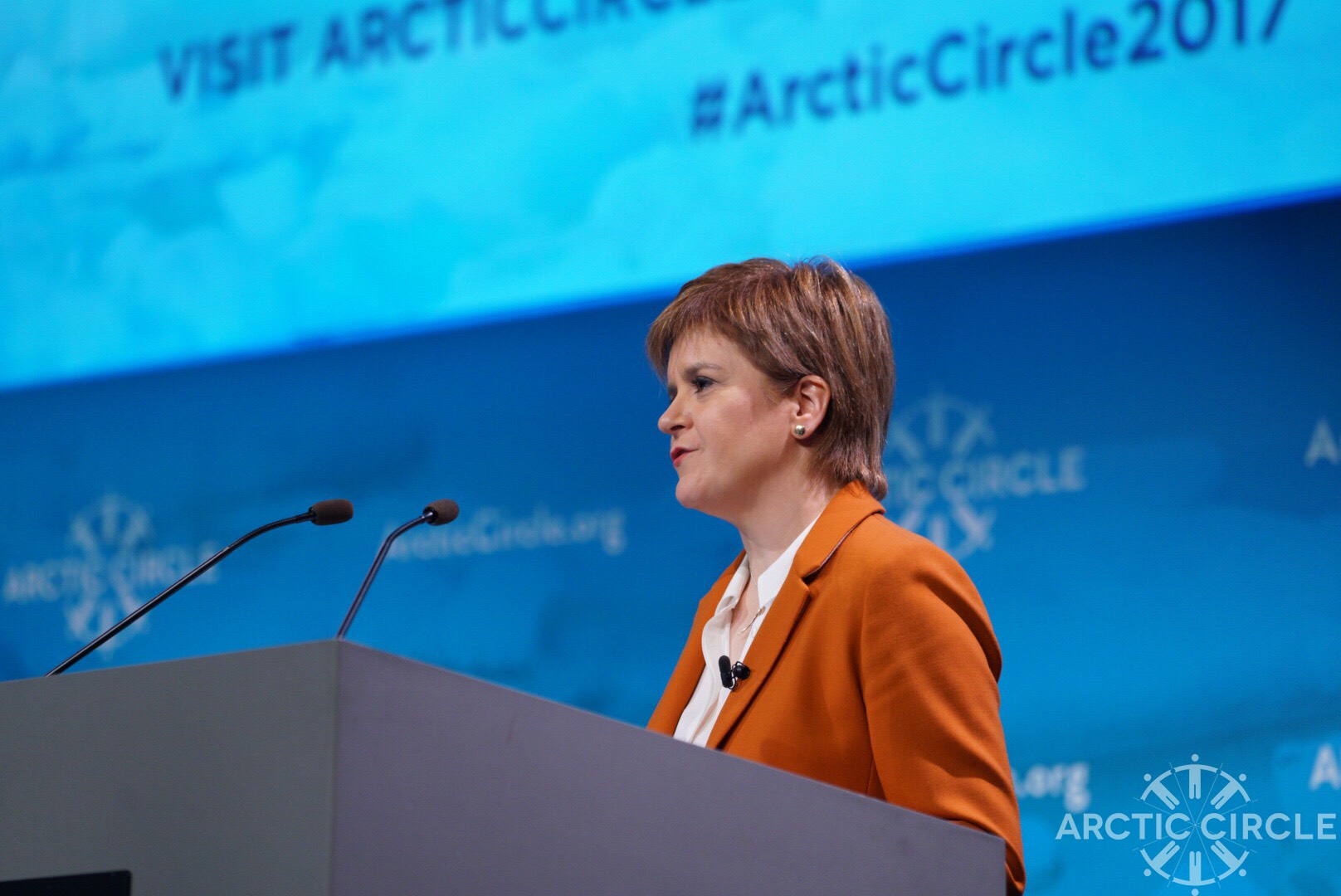Scotland seeks economic dividend as it pivots toward Arctic collaboration

Scotland’s pivot to the North will bring economic benefits to that country, and to the Arctic as a whole, by allowing Edinburgh to capitalize on economic similarities in the region, Nicola Sturgeon, the Scottish leader, said Friday.
“We have strong ties, not just in energy and low-carbon technology, but in areas from food and drink and sustainable tourism, to other fields such as education, life sciences and advanced engineering. I believe that all of us have a huge amount to gain from further integration and collaboration,” Sturgeon said in an address at the Arctic Council Assembly in Reykjavík, Iceland.
[Post-Brexit, Scotland looks toward a more Arctic future]
Arctic countries, according to estimates from the First Minister’s Office, account for five of the 10 largest sources of foreign investment into Scotland. They also provide three of Scotland’s six largest export markets.
Edinburgh will host a meeting of the Arctic Circle in November, and Sturgeon said this reflected her country’s commitment to deepening ties with the region.
“Our hope is that working more closely with the Arctic Circle will help us build a fairer, more prosperous and more sustainable society within Scotland. But we also believe that we can play a part, together with all of you, in bringing benefits to nations across the Arctic and around the world.”
A number of non-Arctic countries have taken an interest in the region in recent years.
Like Scotland, many of them are driven by economic opportunity. However, Edinburgh’s efforts to deepen ties with its northern neighbors — countries like Iceland, the Faroe Islands and Norway — comes as it is pursuing its independence from the United Kingdom.
Meanwhile, Britain is involved in what Sturgeon described as the “deeply damaging and counter-productive” process of Brexit.
While Sturgeon said she had accepted the Brexit vote, she will continue to argue for single-market membership. Here, she said, the countries of the Arctic and far North Atlantic provided an example.
“The five nations of the Nordic Council provide quite an interesting comparison here. All of them have different ways of interacting with Europe, and only two are actually members of the European Union. However all of them are members of the single market.”